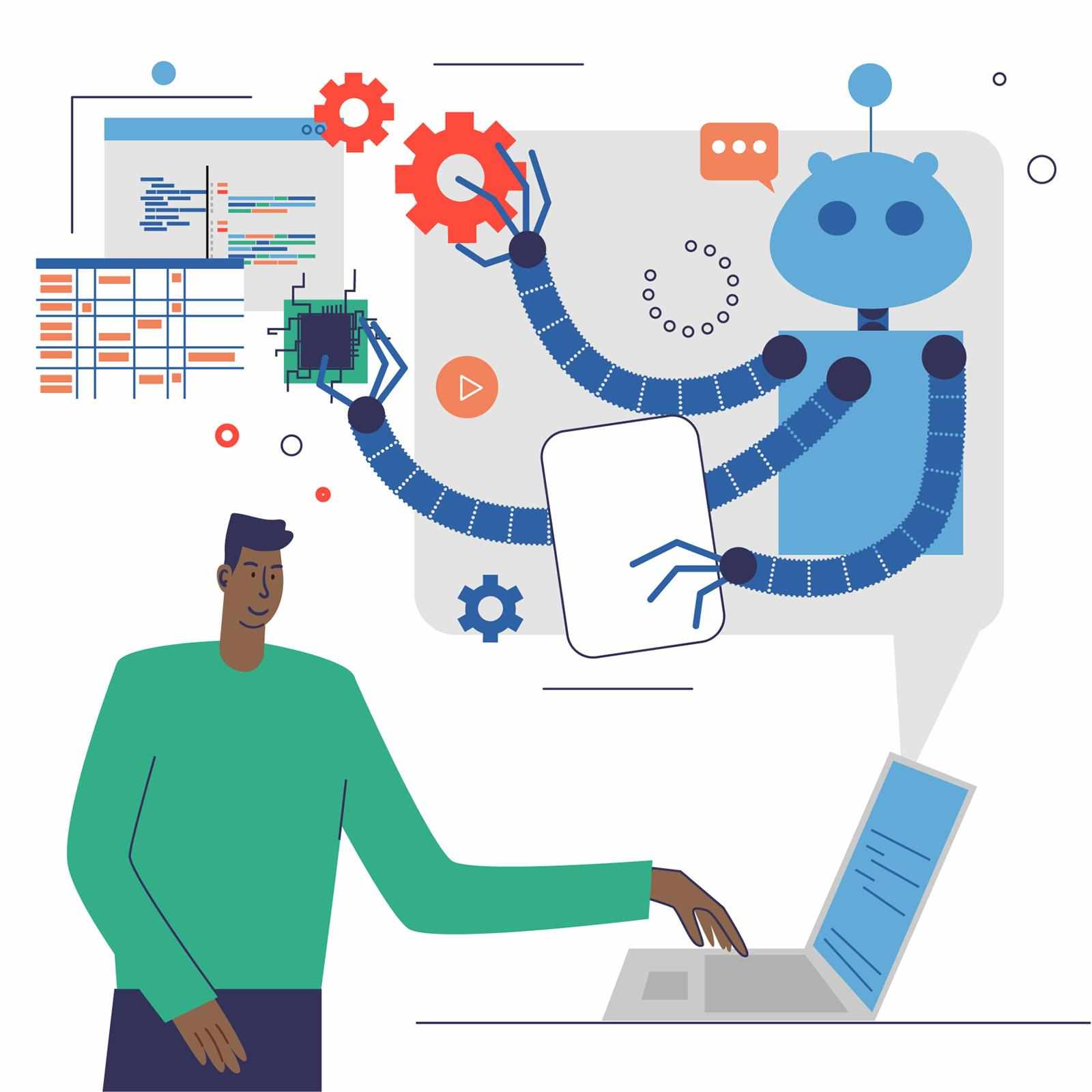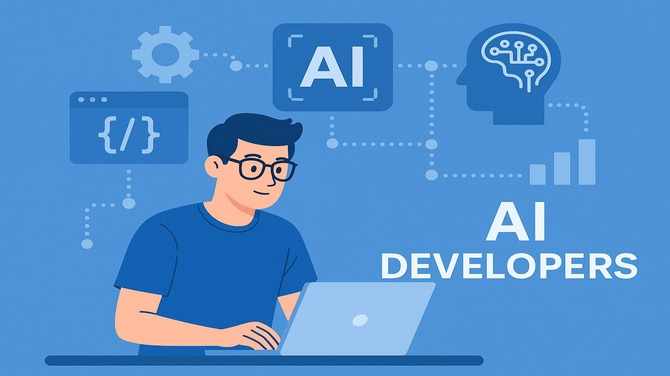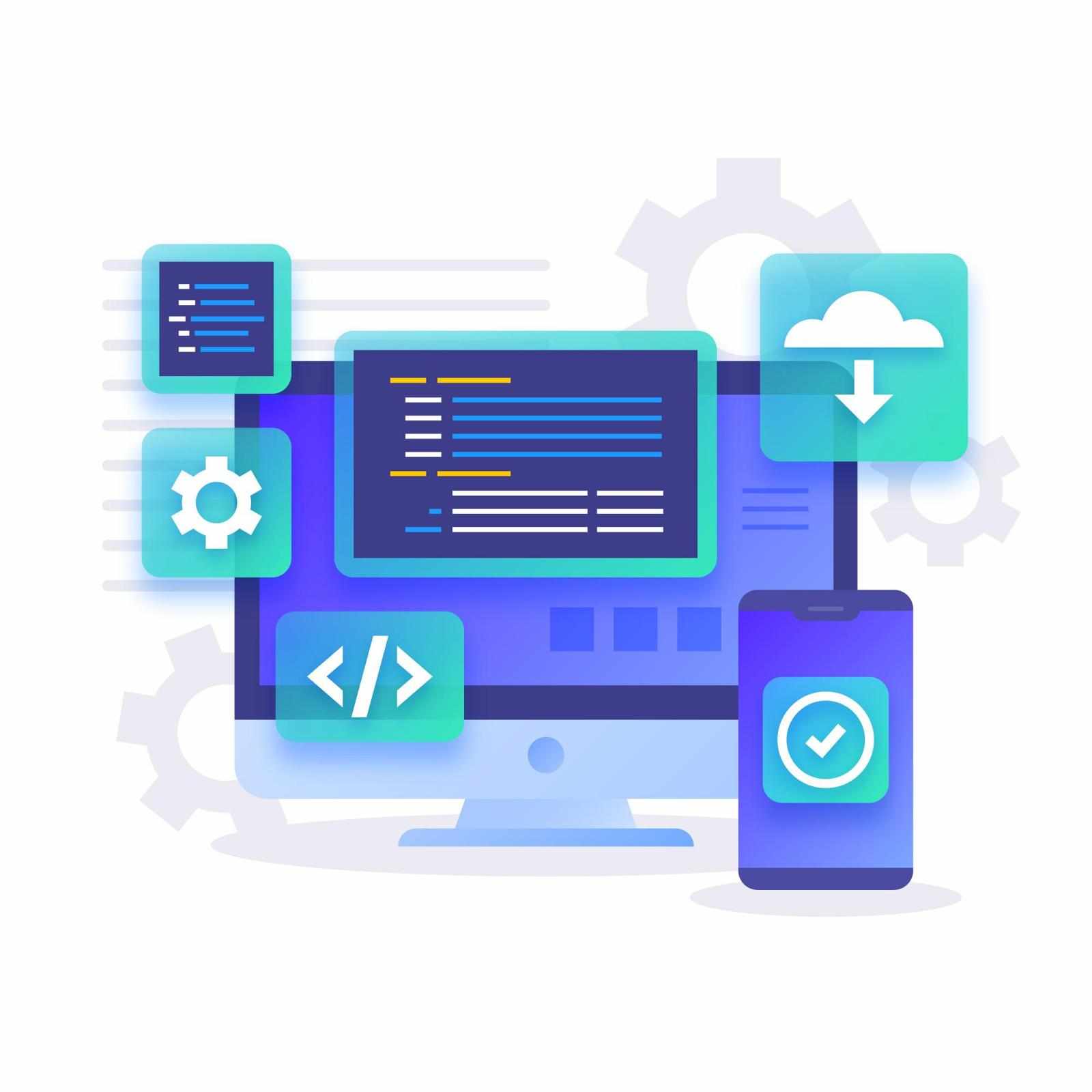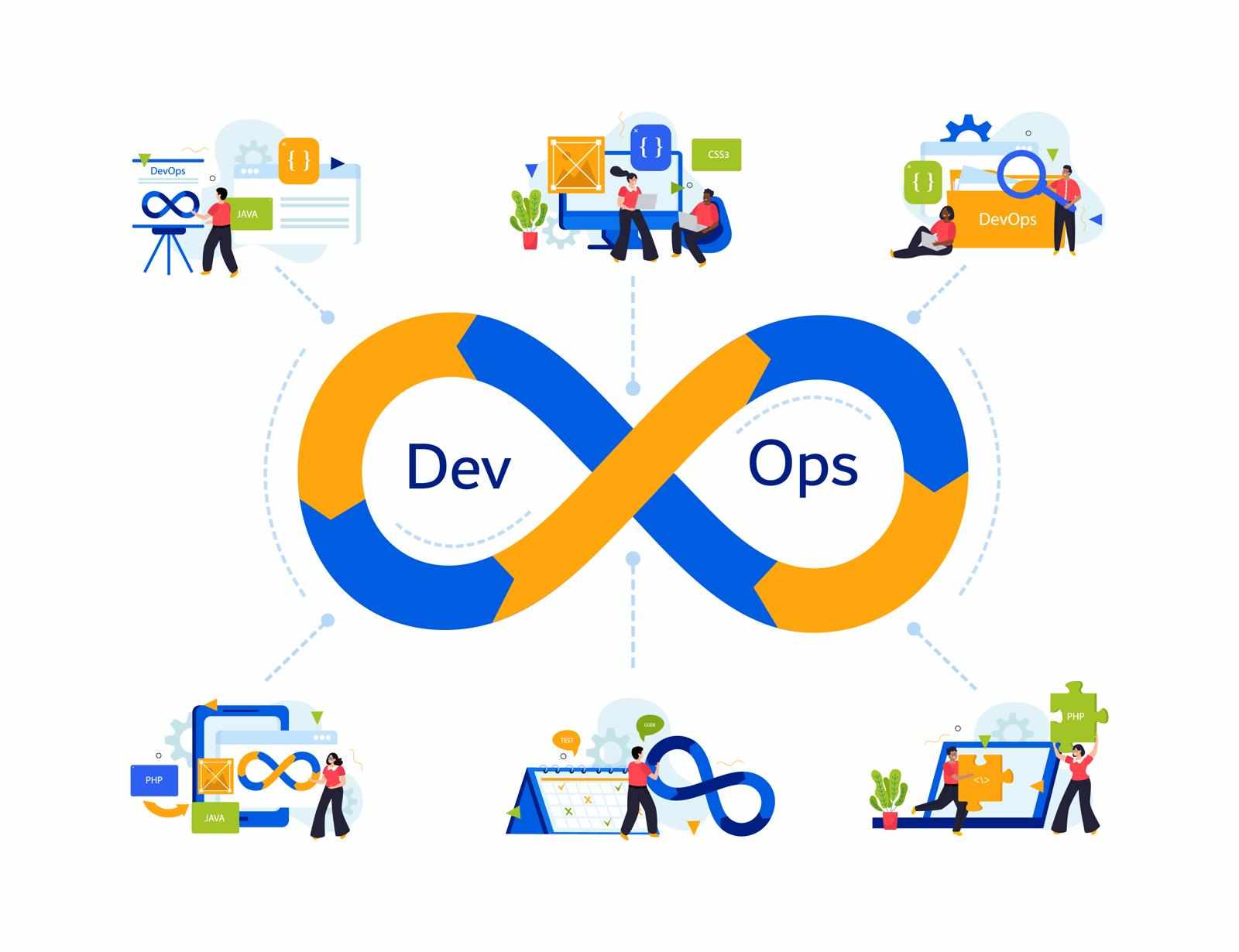
The startup landscape has fundamentally changed. Where once companies spent years building market presence, today's smartest startups are achieving massive scale in months rather than years.
The secret weapon driving this transformation isn't just innovative products or aggressive marketing – it's artificial intelligence. Startups that hire AI developers early gain unprecedented advantages in automation, decision-making, and customer acquisition that traditional approaches simply cannot match.
The percentage of companies integrating AI into at least one business function has dramatically increased to 72 percent, representing a substantial leap from 55 percent in the previous year.
This rapid adoption creates a clear divide between companies that embrace AI early and those that wait. The early adopters don't just compete better – they operate in entirely different leagues.
The AI Scaling Revolution in Modern Startups
Smart startups understand that artificial intelligence isn't just a nice-to-have technology – it's the foundation of modern business acceleration. Unlike established companies that must retrofit AI into existing systems, startups can build AI-first architectures from day one. This approach eliminates the technical debt and integration challenges that slow down larger organizations.
Over 50% of companies plan to incorporate AI technologies in 2024, and 42% of companies are actively exploring AI use. However, startups that act now rather than plan gain significant first-mover advantages. The difference between planning and implementing AI capabilities often determines which companies dominate their markets.
Early AI adoption enables startups to automate processes that would otherwise require large teams. Customer service, data analysis, content creation, and even product development can be enhanced or automated through intelligent systems. This automation allows small teams to achieve outputs that traditionally required much larger organizations.
Machine Learning Drives Competitive Differentiation
Startups that hire AI developers can create products that learn and improve continuously. Unlike static software, AI-powered solutions become more valuable over time as they process more data and refine their algorithms. This creates compound advantages that are difficult for competitors to replicate.
Machine learning capabilities enable startups to personalize experiences at scale, optimize operations automatically, and predict market trends before they become obvious. These capabilities transform startups from reactive businesses into proactive market leaders who shape industry directions rather than follow them.
Current Market Dynamics and Opportunities
The AI talent market presents unique opportunities for startups willing to move quickly. While large corporations often get trapped in lengthy hiring processes and bureaucratic approval chains, agile startups can identify and recruit top AI talent rapidly. AI startups account for 26% of all global VC funding, indicating that investors recognize the outsized potential of AI-powered companies.
This funding environment creates opportunities for startups to compete for talent that might otherwise join established tech giants. The combination of equity upside, cutting-edge projects, and rapid career advancement often appeals to AI developers more than traditional corporate roles.
The global AI market's explosive growth creates expanding opportunities for startups with the right capabilities. The global AI market is projected to reach $500 billion, with a compound annual growth rate (CAGR) of 38% over the next few years. This growth means that startups entering the market now can ride the wave of increasing demand and adoption.
Venture Capital Trends Favor AI-First Startups
Investment patterns clearly favor startups that demonstrate AI capabilities and potential. Venture capitalists understand that AI-powered companies can achieve superior unit economics, faster growth rates, and more defensible market positions. This understanding translates into better funding terms and more patient capital for startups with strong AI foundations.
The venture capital community's focus on AI creates a feedback loop that benefits early adopters. Startups that hire AI developers and build impressive AI capabilities find it easier to raise subsequent funding rounds, creating sustainable competitive advantages that compound over time.
Building AI Development Teams That Scale
Successfully scaling with AI requires more than just hiring individual developers – it demands building cohesive teams that can execute complex projects while maintaining rapid iteration cycles. The most successful startups create AI development cultures that balance innovation with practical execution. They hire AI developers who understand both cutting-edge research and real-world implementation challenges.
Team composition matters significantly in AI development. The best teams combine machine learning engineers, data scientists, and software engineers who can work together seamlessly. This multidisciplinary approach ensures that AI solutions are both technically sound and practically deployable.
Startups must also invest in the infrastructure and tools that enable AI development teams to be productive. This includes cloud computing resources, development frameworks, and data management systems that support rapid experimentation and deployment.
Creating Innovation-Driven Development Culture
The most successful AI-powered startups foster cultures of continuous learning and experimentation. AI technologies evolve rapidly, and teams must stay current with the latest developments to maintain competitive advantages. This requires ongoing investment in team education and conference attendance.
Effective AI development cultures also emphasize data-driven decision making throughout the organization. When everyone understands how to interpret AI outputs and make decisions based on algorithmic insights, the entire company becomes more intelligent and responsive to market changes.
Automation Strategies for Rapid Growth
Smart startups use AI to automate functions that would otherwise require significant human resources. Customer acquisition, lead qualification, content creation, and customer support can all be enhanced or automated through intelligent systems. This automation allows small teams to achieve enterprise-level capabilities without enterprise-level overhead.
The key to successful automation is identifying processes that are repetitive, data-driven, and rule-based. AI developers can then create systems that handle these processes more efficiently than human workers while freeing up human talent for higher-value activities.
Successful automation strategies also include feedback loops that allow AI systems to improve over time. Rather than static automation, smart startups build learning systems that become more effective as they process more data and handle more situations.
Customer Acquisition and Retention Automation
AI-powered customer acquisition systems can identify, target, and convert prospects more effectively than traditional marketing approaches. These systems analyze customer data to predict which prospects are most likely to convert, enabling startups to focus their limited resources on the highest-value opportunities.
Retention automation is equally important for scaling startups. AI systems can identify customers at risk of churning and automatically initiate retention efforts. This proactive approach to customer success helps startups maintain high lifetime value metrics while scaling efficiently.
Data-Driven Decision Making and Intelligence
Startups that hire AI developers gain access to sophisticated data analysis capabilities that inform better strategic decisions. Instead of relying on intuition or limited data samples, AI-powered startups can analyze comprehensive datasets to identify patterns, predict outcomes, and optimize strategies.
This data-driven approach extends beyond internal operations to market intelligence and competitive analysis. AI systems can monitor market trends, track competitor activities, and identify emerging opportunities faster than human analysts.
The speed of AI-driven insights creates significant competitive advantages. While competitors are still collecting and analyzing data manually, AI-powered startups have already identified trends and adjusted their strategies accordingly.
Predictive Analytics for Strategic Planning
Advanced AI capabilities enable startups to move beyond reactive decision-making to predictive strategic planning. By analyzing historical data and market trends, AI systems can forecast future scenarios and recommend optimal strategies for different contingencies.
This predictive capability is particularly valuable for resource allocation and investment decisions. Startups can use AI insights to determine which markets to enter, which products to develop, and which partnerships to pursue based on data-driven predictions rather than guesswork.
Overcoming Implementation Challenges
While the benefits of AI adoption are clear, startups face real challenges in implementation. Only 26% of companies have developed the necessary set of capabilities to move beyond proofs of concept and generate tangible value, highlighting the gap between AI aspirations and successful deployment.
The most common implementation challenges include data quality issues, integration complexities, and talent acquisition difficulties. Smart startups address these challenges proactively by investing in data infrastructure, choosing appropriate technology stacks, and creating attractive environments for AI talent.
Change management also presents challenges as AI systems alter existing workflows and job responsibilities. Successful startups prepare their teams for these changes while maintaining operational stability during transitions.
Technical Infrastructure Requirements
Building AI-powered systems requires robust technical infrastructure that can handle large datasets, complex computations, and real-time processing demands. Startups must invest in cloud computing resources, data storage systems, and networking capabilities that support AI workloads.
The infrastructure choices made early in a startup's development can significantly impact its ability to scale AI capabilities. Companies that choose flexible, scalable infrastructure options position themselves for rapid growth, while those that cut corners on infrastructure often face costly migrations later.
Measuring AI Impact and ROI
Successful AI implementation requires clear metrics and measurement frameworks that demonstrate return on investment. Startups must establish baselines, define success criteria, and track improvements over time to justify continued AI investments and guide future development priorities.
The most effective measurement approaches combine quantitative metrics with qualitative assessments. While revenue growth and cost savings are important, metrics like customer satisfaction, employee productivity, and market responsiveness also indicate AI success.
Regular measurement and optimization cycles ensure that AI systems continue delivering value as business conditions change. This ongoing optimization process helps startups maintain their competitive advantages and adapt to evolving market demands.
Performance Benchmarking and Optimization
Establishing performance benchmarks enables startups to measure AI system effectiveness and identify optimization opportunities. These benchmarks should cover accuracy, speed, cost efficiency, and user satisfaction metrics that align with business objectives.
Continuous optimization based on performance data ensures that AI systems evolve with the business and maintain their competitive advantages. This iterative improvement process often reveals new opportunities for AI application that weren't apparent during initial implementation.
Future-Proofing Your AI Strategy
The AI landscape continues evolving rapidly, and startups must build flexible strategies that can adapt to new technologies and market conditions. Companies that hire AI developers with broad skill sets and forward-thinking approaches position themselves to take advantage of emerging opportunities.
Building AI strategies that can evolve requires balancing current needs with future potential. Startups must invest in foundational capabilities while remaining agile enough to pivot when new opportunities emerge.
Long-term success also depends on building ethical AI practices and maintaining user trust. As AI regulations evolve and public awareness increases, startups with responsible AI practices will have sustainable competitive advantages over those that prioritize short-term gains over long-term viability.
The startups that recognize AI as a fundamental business capability rather than just a technological tool will dominate the next decade of business growth. Those that hire AI developers early and build comprehensive AI capabilities will set the pace for their industries, while those that delay will find themselves perpetually playing catch-up in an increasingly AI-driven world.




















Write a comment ...